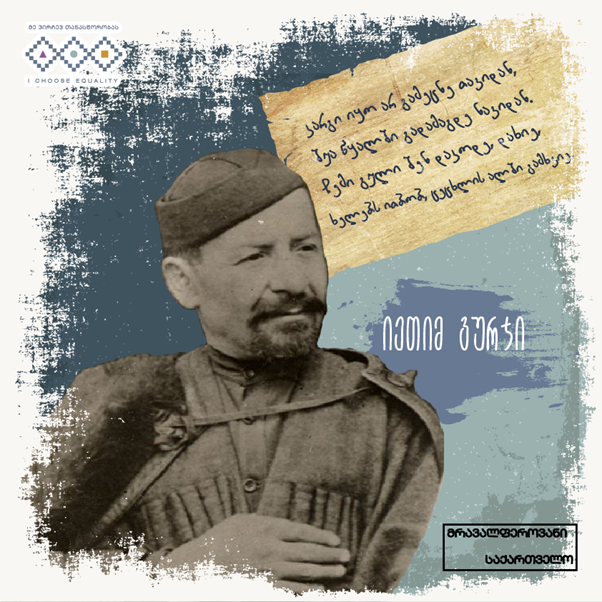Ietim Gurji (Dabghishvili) was born in Tbilisi in 1875, in a family of a poor knacker (currier). His ancestors were Georgians who were captured by the Turks and converted to Islam. Last name Gurji (Georgian) was coined at that time. The national poet’s father Ibrahim settled in Tbilisi and married an Armenian woman, Sarah. Ibrahim named his son Ietim, which means orphan in Turkish. The father thought that after his death, his son would have no one to comfort him.
At the age of 15, Ietim's father died and he became the breadwinner of the family – his mother and sister. During this time, he became an apprentice to a master of musical instruments and studied the making of various instruments (Chonguri, Chianuri, Dairi, etc.). At the same time, he supported himself and his family by trading books from bookstores. Soon his mother died and his orphaned siblings moved to a small mud-hut near the Metekhi bridge. Young people used to gather there and the poet taught them songs.
Ietim Gurji started writing poems when he was 20. His poems spread in the city mainly in the form of songs. He created the motifs of the songs himself, which he even performed together with his own band (ensemble of shawm players). His songs were heard everywhere, where duduk, sazandar, drum and accordion were playing. The poet also wrote poems in Armenian and Azerbaijani. His handwritten notebooks are full of Armenian and Azerbaijani poems written in Georgian alphabet.
Ietim Gurji's poems were published in small collections. Poetry with amorous or social motifs reflected the life of city workers, craftsmen, small traders and peasants, the old Tbilisi bohemia.
Ietim Gurji died at the age of 65. Many people attended his funeral, including Georgian writers such as Ioseb Grishashvili, Giorgi Leonidze, Shalva Dadiani, Irakli Abashidze, Lado Asatiani and others. His body was carried by hand from Isani to Vake Cemetery. During the procession, his coffin was covered with a felt cloak, which was his inseparable friend in winter. The procession was accompanied by oriental instrumental ensembles. At the tomb of Ietim, his own tunes were sung by musicians who seemed to be competing with each other to show their love towards the author. Interest in Ietim’s poetic heritage has not decreased to date. His is currently buried in Didube Pantheon.





